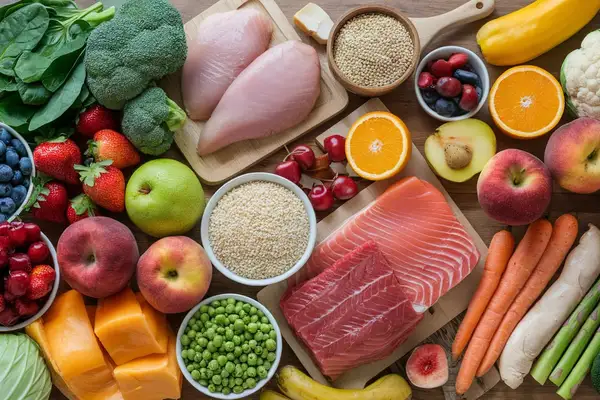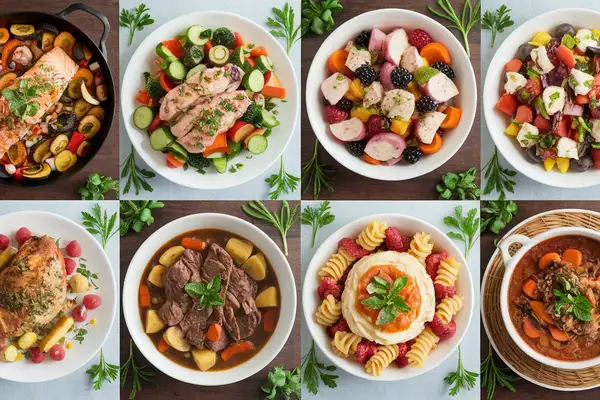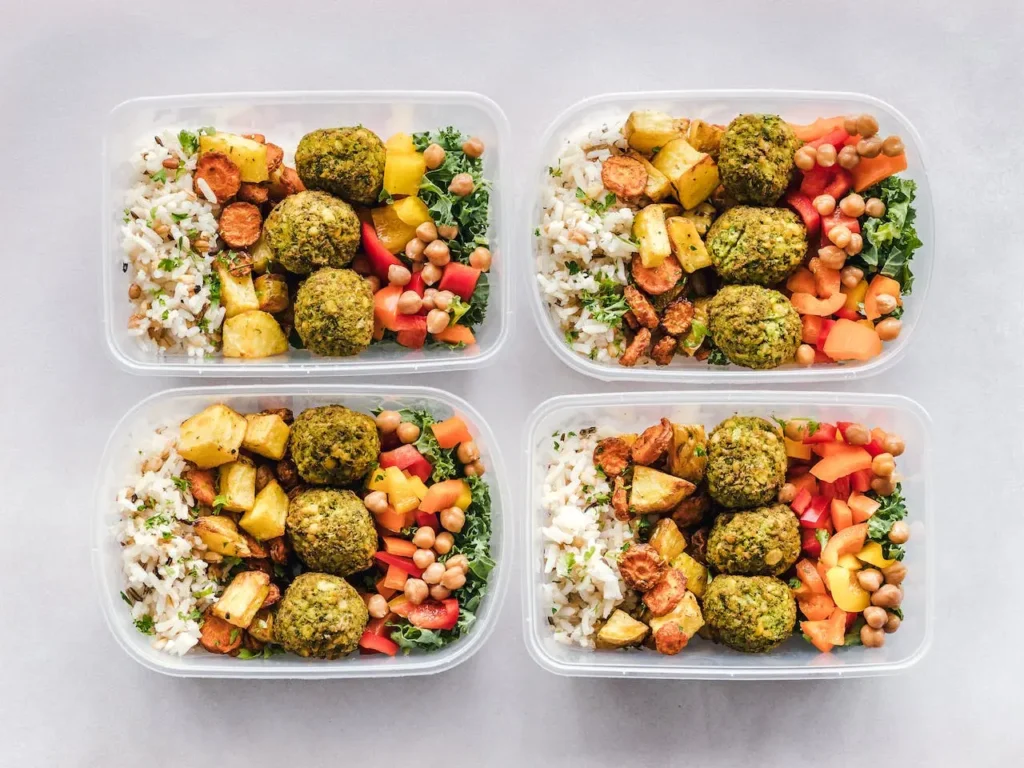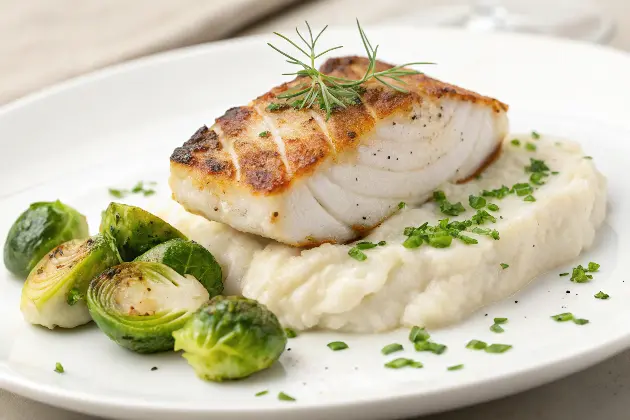7-Day PCOS Diet Plan To Lose Weight: A Complete Guide

This post may contain affiliate links, meaning I may earn a commission if you make a purchase, at no extra cost to you. I only recommend products I trust. Thank you for your support.
PCOS, or Polycystic Ovary Syndrome, is a hormonal disorder that affects women of reproductive age.
It is characterized by the presence of cysts in the ovaries, irregular menstrual cycles, and an overproduction of androgens (male hormones) in the body.
PCOS can cause various symptoms such as weight gain, PCOS belly fat, insulin resistance, acne, and hair loss. It is a common condition that affects approximately 1 in 10 women worldwide.
A PCOS diet plan plays a crucial role in managing PCOS symptoms and promoting weight loss, especially PCOS belly fat.
A well-balanced and nutritious PCOS meal plan can help regulate hormone levels, improve insulin sensitivity, and support weight loss, which are all important factors in managing PCOS.
A PCOS diet plan focuses on eating nutrient-dense foods, controlling portion sizes, and avoiding processed foods and sugary beverages.
By making dietary changes, women with PCOS can improve their overall health and well-being.
Meal Prep For PCOS
Creating a 7-day PCOS diet plan to lose weight involves careful consideration of nutrient needs and portion sizes.
Here are some meal prep tips for PCOS to help you get started:
- The PCOS diet plan should include a mix of whole grains, quality sources of protein, healthy fats, and an adequate amount of fiber.
- It should provide an average of 8700 kilojoules per day which is based on the average energy requirements of women with PCOS.
- Include 25 to 30 grams of protein per meal and 8 to 10 grams per snack from animal and plant sources.
- Include sources of healthy fat in every meal, such as olive oil, nuts, seeds, and fatty fish like salmon.
- Your PCOS meal plan should meet daily fiber recommendations (approximately 30 grams per day) by eating fruits, vegetables, legumes, and whole grains.
- Follow the MyPlate method for optimal serving sizes: Make half your plate non-starchy fruits and veggies, one-quarter of your plate lean protein, and another one-quarter starchy carbs and grains.
- Pay attention to portion sizes to avoid overeating. Use measuring cups, food scales, or visual cues to ensure appropriate portions.
- Calculate your daily calorie needs based on factors such as age, weight, height, and activity level. Aim for a moderate calorie deficit if weight loss is your goal.
7-day PCOS Diet Plan to Lose Weight (PCOS Menu)
This 7-day PCOS meal plan is carefully designed to provide balanced nutrition and controlled portions to support weight loss and improve symptoms associated with PCOS.

Day 1
Breakfast:
- Chia pudding: 1/4 cup chia seeds, 1 cup unsweetened almond milk, 1 tsp vanilla extract, 1/4 cup sliced strawberries.
Lunch:
- Grilled chicken with sweet potatoes: 3 oz grilled chicken breast, 1 cup roasted sweet potatoes, 1/2 cup green beans.
- Grilled chicken salad: 3 oz grilled chicken breast, 2 cups mixed greens (spinach, arugula), 1/2 cup cherry tomatoes, 1/4 cup cucumber, 1 tbsp olive oil, and lemon juice dressing.
Dinner:
- Baked salmon with steamed broccoli: 3 oz baked salmon, 1 cup of broccoli, 1/2 cup quinoa.
- Baked cod with roasted vegetables: 3 oz baked cod, 1 cup roasted mixed vegetables (carrots, zucchini, bell peppers), 1/2 cup barley.
Snacks:
- 1 apple, 10 walnuts.
- 1/4 cup hummus, 1 cup sliced bell peppers.

Day 2
Breakfast:
- Omelette with vegetables: 2 eggs, 1/4 cup diced bell peppers, 1/4 cup spinach, 1/4 cup diced tomatoes, 1 tbsp feta cheese.
Lunch:
- Vegetable lasagna: 1 cup sliced zucchini, 1/4 cup marinara sauce, 1/4 cup ricotta cheese, 1 tbsp Parmesan cheese, layered and baked.
- Stuffed bell peppers: 1 bell pepper stuffed with 1/2 cup cooked quinoa, 1/4 cup black beans, 1/4 cup diced tomatoes, 1 tbsp chopped cilantro.
Dinner:
- Vegetable and tofu stir-fry: 3 oz tofu, 1 cup mixed vegetables (broccoli, bell peppers, snap peas), 1 tbsp soy sauce, 1 tsp sesame oil, 1/2 cup brown rice.
- Eggplant and chickpea stew: 1 cup eggplant diced, 1/2 cup cooked chickpeas, 1/4 cup diced tomatoes, 1 tsp cumin, 1/2 cup brown rice.
Snacks:
- 1 pear, 10 pistachios.
- 1/4 cup hummus, 1 cup sliced cucumbers.
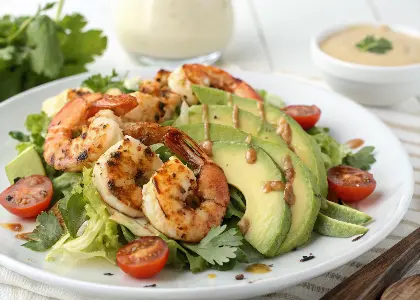
Day 3
Breakfast:
- Overnight oats: 1/2 cup rolled oats, 1/2 cup unsweetened almond milk, 1/2 banana sliced, 1 tbsp flaxseeds, 1/4 tsp cinnamon.
Lunch:
- Broccoli falafels with buckwheat: 1 cup steamed broccoli, 1/2 cup cooked buckwheat, 1 cup canned chickpeas (drained and rinsed), 1/4 cup chopped parsley, 2 tbsp chickpea flour, bake at 375°F (190°C) for 20-25 minutes.
- Egg and herb salad: 2 hard-boiled eggs, chopped, 2 cups mixed greens (spinach, arugula), 1/4 cup chopped fresh herbs (parsley, dill, chives), 1/4 cup cherry tomatoes, halved, 1/4 avocado, diced.
Dinner:
- Shrimp and avocado salad: 3 oz grilled shrimp, 1/2 avocado diced, 2 cups mixed greens, 1/4 cup cherry tomatoes, 1 tbsp olive oil, and lemon juice dressing.
- Tuna salad: 1 can tuna (in water, drained), 1/4 cup diced celery, 1/4 cup diced red onion, 1 tbsp olive oil and lemon juice dressing, served on a bed of mixed greens.
Snacks:
- 1 kiwi, 10 almonds.
- 1/4 cup Greek yogurt, 1/4 cup blueberries.
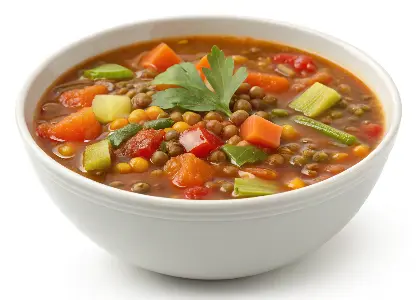
Day 4
Breakfast:
- Egg and avocado toast: 1 slice whole grain toast, 1/2 avocado mashed, 1 poached egg, sprinkle of salt and pepper.
Lunch:
- Lentil and vegetable stew: 1 cup cooked lentils, 1/4 cup diced carrots, 1/4 cup diced tomatoes, 1/4 cup chopped spinach, 1 tsp cumin.
- Black bean soup: 1 cup black beans, 1/2 cup diced tomatoes, 1/4 cup diced bell peppers, 1 tsp cumin, 1/4 cup diced onions.
Dinner:
- Baked cod with green beans: 3 oz baked cod, 1 cup steamed green beans, 1/2 cup brown rice.
- Tofu and vegetable stir-fry: 3 oz tofu, 1 cup mixed vegetables (broccoli, bell peppers, snap peas), 1 tbsp soy sauce, 1 tsp sesame oil, 1/2 cup brown rice.
Snacks:
- 1 small peach.
- 10 baby carrots with hummus.
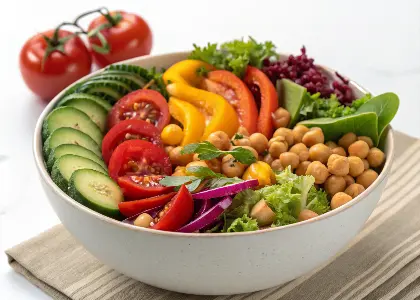
Day 5
Breakfast:
- Smoothie bowl: 1 cup unsweetened almond milk, 1/2 banana, 1/2 cup spinach, 1/2 cup mixed berries, 1 tbsp chia seeds, topped with 1/4 cup granola.
Lunch:
- Spinach and strawberry salad: 2 cups spinach, 1/2 cup sliced strawberries, 1/4 cup feta cheese, 1 tbsp balsamic vinaigrette.
- Chickpea and veggie bowl: 1/2 cup cooked chickpeas, 1/4 cup diced cucumbers, 1/4 cup cherry tomatoes, 1/4 cup shredded carrots, 1 tbsp tahini dressing.
Dinner:
- Baked chicken with Brussels sprouts: 3 oz baked chicken breast, 1 cup of roasted Brussels sprouts, 1/2 cup quinoa.
- Vegetable curry: 1 cup mixed vegetables (cauliflower, potatoes, peas), 1/2 cup coconut milk, 1 tsp curry powder, 1/2 cup brown rice.
Snacks:
- 1 apple, 10 walnuts.
- 1/4 cup hummus, 1 medium sliced cucumber.
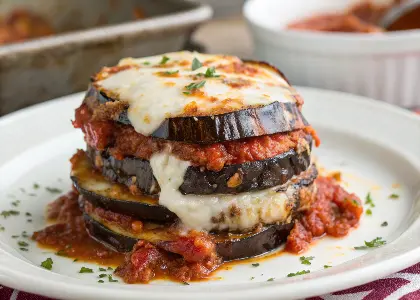
Day 6
Breakfast:
- Muesli Yogurt: 1/2 cup Greek yogurt, 1/4 cup muesli, 1/4 cup mixed berries, 1 tsp honey.
Lunch:
- Turkey wrap: 1 whole wheat tortilla, 3 oz sliced turkey breast, 1/4 avocado, 1/4 cup shredded lettuce, 1/4 cup shredded carrots, 1 tbsp mustard.
- Eggplant Parmesan: 1 cup baked eggplant slices, 1/4 cup marinara sauce, 2 tbsp grated Parmesan cheese, 1/2 cup whole wheat pasta.
Dinner:
- Turkey Meatballs with Zucchini Noodles: 3 oz turkey meatballs (4-5 small meatballs), 1 cup zucchini noodles, 1 tbsp olive oil, 1 garlic clove minced, 1/4 cup grated Parmesan cheese, 1/4 cup marinara sauce, salt and pepper to taste.
- Tofu stir-fry: 3 oz tofu, 1 cup mixed vegetables (bell peppers, snap peas, carrots), 1 tbsp soy sauce, 1 tsp sesame oil, 1/2 cup brown rice.
Snacks:
- 1 small pear.
- 1 string cheese.
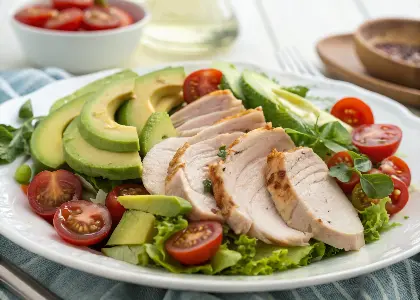
Day 7
Breakfast:
- Green Shakshuka with non-fat milk: 2 eggs, 1 cup spinach (chopped), 1/2 cup cherry tomatoes (halved), 1/4 cup bell peppers (diced), 1/2 cup non-fat milk, salt and pepper to taste, 1 tsp olive oil.
Lunch:
- Quinoa salad: 1/2 cup cooked quinoa, 1/4 cup diced cucumber, 1/4 cup diced tomatoes, 1/4 cup chickpeas, 1 tbsp olive oil and lemon juice dressing.
- Chicken and vegetable soup: 1 cup chicken broth, 3 oz shredded chicken breast, 1/2 cup diced carrots, 1/4 cup diced celery, 1/4 cup chopped spinach.
Dinner:
- Grilled shrimp with zucchini noodles: 3 oz grilled shrimp, 1 cup zucchini noodles, 1 tbsp olive oil, 1 tbsp Parmesan cheese.
- Turkey and avocado salad: 3 oz sliced turkey breast, 1/4 avocado diced, 2 cups mixed greens, 1/4 cup cherry tomatoes, 1 tbsp olive oil, and lemon juice dressing.
Snacks:
- 1 small pear.
- 1 oz. mixed nuts.
Best Foods To Eat With PCOS
When following a PCOS diet plan, it is important to include foods that support hormonal balance and weight loss.
Here are PCOS friendly foods to include in your PCOS meal plan:
Fruits
- Berries (e.g., strawberries, blueberries, raspberries)
- Apples
- Pears
- Citrus fruits (e.g., oranges, lemons, limes)
- Kiwi
- Cherries
- Plums
- Peaches
- Grapes
- Pomegranates
Vegetables
- Leafy greens (e.g., spinach, kale, arugula)
- Cruciferous vegetables (e.g., broccoli, cauliflower, Brussels sprouts)
- Bell peppers
- Tomatoes
- Carrots
- Zucchini
- Cucumbers
- Green beans
- Asparagus
- Eggplant
Protein Sources
- Lean meats (e.g., chicken, turkey)
- Fish (especially fatty fish like salmon and mackerel)
- Legumes (e.g., lentils, chickpeas, black beans)
- Tofu and tempeh
- Eggs
- Nuts and seeds (e.g., almonds, walnuts, chia seeds, flaxseeds)
- Greek yogurt (unsweetened)
- Cottage cheese (low-fat)
- Edamame
- Quinoa
Grains
- Whole grains (e.g., brown rice, quinoa, farro)
- Oats (e.g., steel-cut oats, rolled oats)
- Barley
- Bulgur
- Whole wheat bread
- Whole grain pasta
- Buckwheat
- Millet
- Teff
- Amaranth
Dairy
- Greek yogurt (unsweetened, low-fat)
- Cottage cheese (low-fat)
- Almond milk (unsweetened)
- Coconut milk (unsweetened)
- Cashew milk (unsweetened)
- Cheese (low-fat options like mozzarella, feta)
- Kefir
- Plain yogurt (unsweetened)
- Ricotta cheese (part-skim)
- Soy milk (unsweetened)
Desserts/Snacks
- Dark chocolate (70% cocoa or higher)
- Nuts and seeds (e.g., almonds, pumpkin seeds)
- Hummus with veggie sticks
- Fruit salad (fresh, with no added sugar)
- Greek yogurt with berries (unsweetened)
- Chia pudding (made with unsweetened almond milk)
- Smoothies (made with low-GI fruits, vegetables, and unsweetened almond milk)
- Energy balls (made with dates, nuts, and seeds)
- Popcorn (air-popped, no butter)
- Trail mix (unsweetened, with nuts and seeds)
Foods to Avoid With PCOS
While certain foods can be beneficial for women with PCOS, some foods should be avoided when preparing your PCOS diet plan.
Here are some of the foods to avoid with PCOS:
Sugary Foods
- Sugary Beverages: Soda, energy drinks, sweetened coffee or tea.
- Candies and Sweets: Candies, chocolates, cakes, cookies, pastries, and other high-sugar desserts.
- Sweetened Breakfast Cereals: High-sugar cereals that lack fiber and nutrients.
- Sweetened Yogurts: Yogurts with added sugars or syrups.
High Glycemic Index (GI) Foods
- White Bread and Pastries: White bread, bagels, croissants, and other refined flour products.
- White Rice: Highly processed white rice and rice-based products.
- Instant Breakfast Cereals: Instant oatmeal and other instant breakfast cereals with added sugars.
- Potatoes: White potatoes and potato-based snacks like chips and fries.
Processed and Refined Foods
- Processed Meats: Sausages, hot dogs, bacon, and other processed meats high in saturated fats.
- Fast Food: Burgers, fried chicken, pizza, and other fast food items high in unhealthy fats and sugars.
- Packaged Snacks: Chips, crackers, and snack bars with artificial flavors, colors, and preservatives.
- Ready-to-Eat Meals: Packaged meals, instant noodles, and microwave dinners high in sodium and unhealthy fats.
High-Saturated Fat Foods
- Fatty Meats: Beef, pork, lamb, and other fatty cuts of meat.
- Full-Fat Dairy: Whole milk, cream, full-fat cheese, and butter.
- Processed Foods with Trans Fats: Margarine, shortening, and processed foods containing hydrogenated oils.
High-Sodium Foods
- Canned Soups and Sauces: Canned soups, sauces, and ready-to-eat meals high in sodium.
- Processed Snacks: Salted nuts, pretzels, and other salty snacks.
- Pickles and Fermented Foods: Pickles, olives, and fermented foods high in sodium.
Alcohol
- Beer, Wine, and Spirits: Alcoholic beverages can impact hormone levels and insulin resistance.
Other Foods
- Highly Processed Foods: Foods with artificial additives, preservatives, and colorings.
- Excessive Caffeine: Limit intake of coffee, energy drinks, and caffeinated beverages.
Benefits of Following a PCOS Diet Plan
Following a PCOS diet plan can offer numerous benefits for women with this condition. Some of the key advantages include:
1. Weight loss
- Obesity and weight gain are common in women with PCOS. A tailored PCOS diet plan can help shed excess pounds and improve overall health.
2. Hormonal regulation
- A PCOS diet plan can help regulate hormone levels, including insulin and androgens, reducing symptoms such as irregular periods and excessive hair growth.
3. Improved fertility
- By improving hormonal balance and promoting weight loss, a PCOS diet plan can enhance fertility in women with PCOS who are trying to conceive.
4. Reduced inflammation
- Certain foods can trigger inflammation in the body, worsening PCOS symptoms. A well-designed diet plan can help reduce inflammation and alleviate symptoms.
5. Increased energy levels
- A healthy PCOS diet plan can provide the necessary nutrients to boost energy levels, combat fatigue, and improve overall well-being.
6. Lowered risk of chronic diseases
- Following a PCOS diet plan can help reduce the risk of developing chronic conditions such as type 2 diabetes, heart disease, and high blood pressure.
Tips For Successful Weight Loss on a PCOS Diet Plan
Weight loss can be challenging for women with PCOS, but with the right strategies, it is achievable.
Here are some tips for successful weight loss on a PCOS diet plan:
1. Portion control
- Pay attention to portion sizes and avoid overeating. Use smaller plates and bowls to help control portions.
2. Regular exercise
- Incorporate regular physical activity into your routine, such as walking, cycling, or strength training. Aim for at least 150 minutes of moderate-intensity exercise per week.
3. Stay hydrated
- Drink plenty of water throughout the day to stay hydrated and support weight loss.
4. Manage stress
- Chronic stress can worsen PCOS symptoms and hinder weight loss. Practice stress-management techniques such as meditation, yoga, or deep breathing exercises.
5. Get enough sleep
- Aim for 7-9 hours of quality sleep each night to support hormone balance and weight loss.
6. Quit smoking
- Smoking can worsen PCOS symptoms and increase the risk of developing chronic diseases. Quitting smoking can have numerous health benefits.
7. Limit alcohol consumption
- Excessive alcohol intake can disrupt hormone balance and contribute to weight gain. Limit alcohol consumption to moderate levels or avoid it altogether.
8. Regular check-ups
- Schedule regular check-ups with your healthcare provider to monitor your progress, adjust your treatment plan if necessary, and address any concerns or questions you may have.
Conclusion
Following a 7-day PCOS diet plan can be a helpful tool for women with PCOS who are looking to manage their symptoms and achieve weight loss.
A well-designed PCOS meal plan for weight loss should prioritize nutrient-dense, whole foods that are low in refined carbohydrates and sugars while being high in fiber, lean proteins, and anti-inflammatory compounds.
Incorporating a variety of fruits, vegetables, nuts, seeds, and lean proteins such as fish and chicken can help manage insulin resistance and inflammation commonly associated with PCOS.
Additionally, avoiding or minimizing processed foods, sugary snacks and drinks, and saturated fats is crucial.
Furthermore, lifestyle modifications including regular physical activity, stress reduction techniques, and adequate sleep play a significant role in weight management for individuals with PCOS.
Remember to consult with a healthcare professional or registered dietitian before making any significant changes to your diet or exercise routine.
Also, check out these trending articles:
- What are some good soft foods to eat after dental surgery?
- 3000 calorie high protein meal plan
- Elimination diet food list
- Meal plan for pregnant women
- The menopause diet 5 day plan for weight loss
- 7-day 90/30/50 diet plan
- 7-day bone broth diet plan
- Endometriosis diet plan
- 40 easy mediterranean diet breakfast ideas
- 7-day carb cycling meal plan
- 7-day Daniel fast meal plan
- 100 low fodmap snack ideas
- What is the life expectancy with fatty liver disease?
- 7-day low potassium meal plan
Frequently Asked Questions (FAQs)
Can a PCOS diet plan help with weight loss?
Yes, a PCOS diet plan can be effective for weight loss as it focuses on consuming whole foods, controlling portion sizes, and managing insulin levels.
How long does it take to see results from a PCOS diet plan?
The timeframe for seeing results from a PCOS diet plan may vary for each individual. It is important to be patient and consistent with your dietary and lifestyle changes.
Can a PCOS diet plan improve fertility?
Yes, a PCOS diet plan can improve fertility by promoting regular ovulation and hormonal balance.
How much water should I drink on a PCOS diet plan?
It is recommended to drink at least 8 cups (64 ounces) of water per day to stay hydrated and support weight loss.
Can stress worsen PCOS symptoms?
Yes, chronic stress can worsen PCOS symptoms. Managing stress through relaxation techniques and self-care is important for overall PCOS management.
What diet is best for PCOS weight loss?
The best diet for PCOS weight loss comprises high-fiber foods, lean proteins, and anti-inflammatory foods such as fruits, vegetables, nuts, and seeds and limit refined carbohydrates, sugary snacks, fried foods, and saturated fats like butter or margarine.
How can i lose weight with PCOS fast?
To lose weight with PCOS fast, focus on addressing insulin resistance and inflammation by adopting a diet low in sugar and high in low glycemic load foods, omega-3 rich fish, olive oil, non-starchy vegetables, and whole grains.
Additionally, engage in regular exercise, prioritize sleep, manage stress, and consider thyroid screening.
Resources
- National Institute of Child Health and Human Development. Polycystic Ovary Syndrome (PCOS). https://www.nichd.nih.gov/health/topics/pcos
- Polycystic ovary syndrome (PCOS). https://www.mayoclinic.org/diseases-conditions/pcos/symptoms-causes/syc-20353439
- Centers for Disease Control and Prevention. Polycystic Ovary Syndrome (PCOS). https://www.cdc.gov/diabetes/basics/pcos.html
Disclaimer: This 7-day PCOS diet plan is for informational purposes only and should not replace professional medical advice.
It is essential to consult with a healthcare provider or a registered dietitian before making significant changes to your diet, especially if you have PCOS or any other medical condition.
